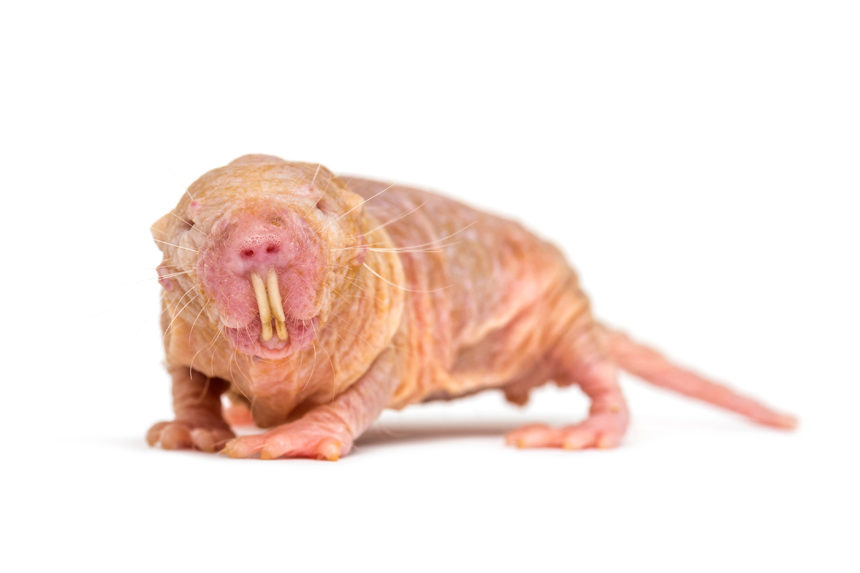Managing editor and logophile Andy Hollandbeck reveals the sometimes surprising roots of common English words and phrases. Remember: Etymology tells us where a word comes from, but not what it means today.
If someone exhibits courage, we call them courageous. Something consisting of gas is gaseous. Something that causes nausea is nauseous. What, then, are we to make of the word hideous. Does it have something to do with animal hides? Or is it related to the verb to hide, maybe referring to something that should be hidden?
In short, no. Though there are some holes in the exact history of hideous, we do know that it isn’t related to hide in either sense.
Like so many -ous words, hideous came to English from French — though not, like so many other words, from Latin. It started appearing in English texts as hidous, an Anglo-French spelling of the Old French hideus. The latter, however, was much earlier hisdos, meaning practically what hideous does today: “horrible, frightening.”
Hisda is likely from a Germanic, not Latinate, origin. But there the trail runs cold. (An earlier theory, that it traces to the Latin hispidus “shaggy, bristly” is generally discredited.) Though the source isn’t Latin, the commonness of those Latin endings in French — which is, after all, a Romance language — likely had a great influence on the shift in spelling and pronunciation that turned hisda into hideus (and Modern French hideux).
So hideous is not related to hide, but hide itself is interesting, a likely case of a word splitting senses in the distant past and then, much later, reconverging on a single spelling.
The Old English verb hydan meant “to conceal, preserve” or “to bury a corpse.” It comes from a West Germanic root that predates English, but it obviously became the English verb to hide. Old English also had the noun hyd, meaning “skin, animal hide.” This can be theoretically traced back to a Germanic ancestor as well.
It’s no coincidence that hyd and hydan look so similar, though: If you trace the words back into prehistory, you will theoretically find a single linguistic source with the notion of “covering” — whether it’s a cover to hide your precious food or a cover for your hideous innards.
Become a Saturday Evening Post member and enjoy unlimited access. Subscribe now




Comments
Andy, are you suggesting (with the opening picture) that this ‘looks challenged’ animal is hid—-? You are (it’s okay), but didn’t say it as such. I’m not even sure what animal he is, but has his place in the animal family somehow, right? There. So ‘hide’ itself has no relation to ‘hideous’, which is interesting.
Plenty of curve balls in this segment. The old English verb ‘hydan’ clearly makes sense. The very thought of seeing our hideous innards is almost enough to make me faint. Thank God our doctors, veterinarians and their assistants don’t have that problem, or got past it right quick if they did.